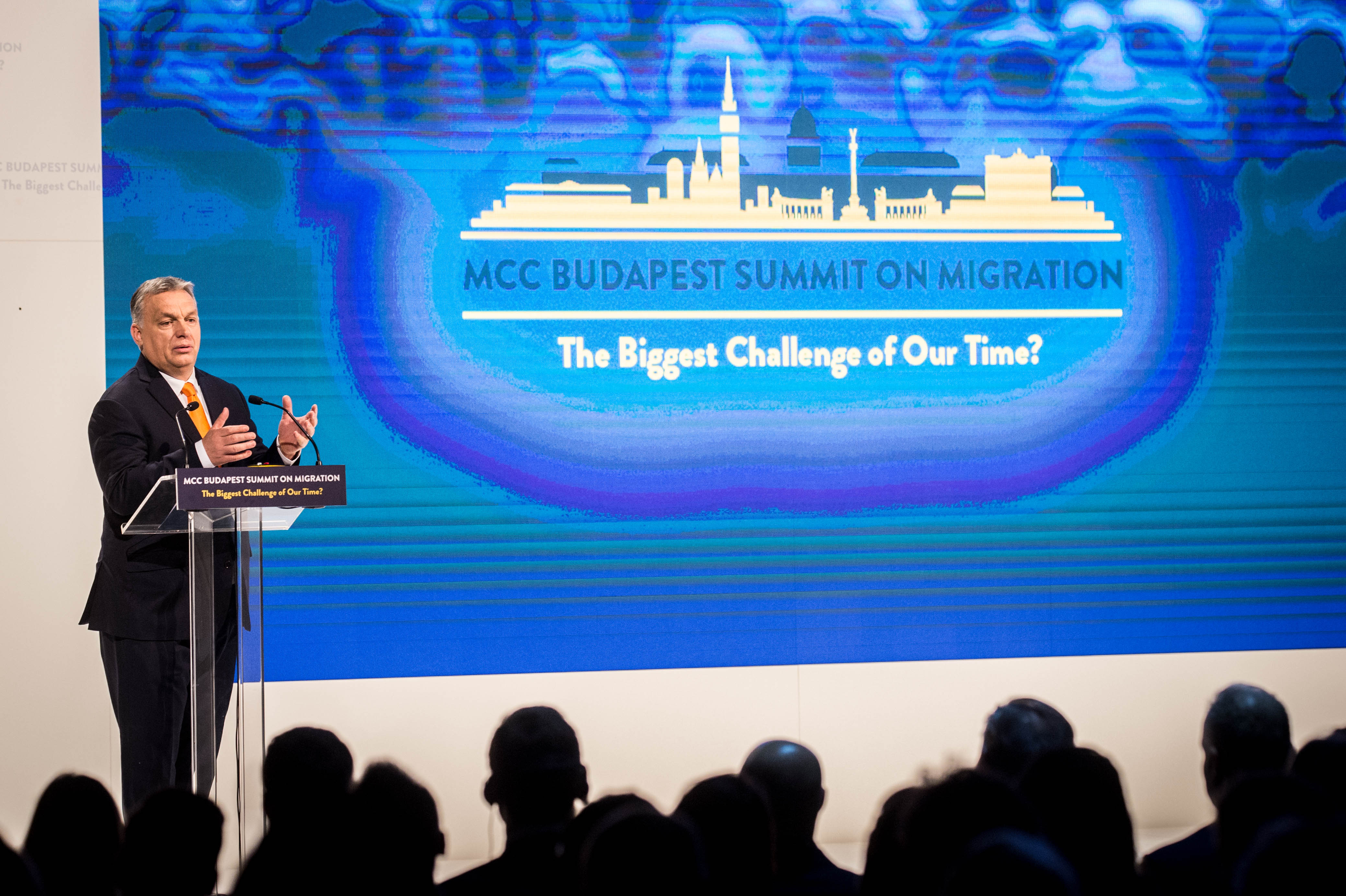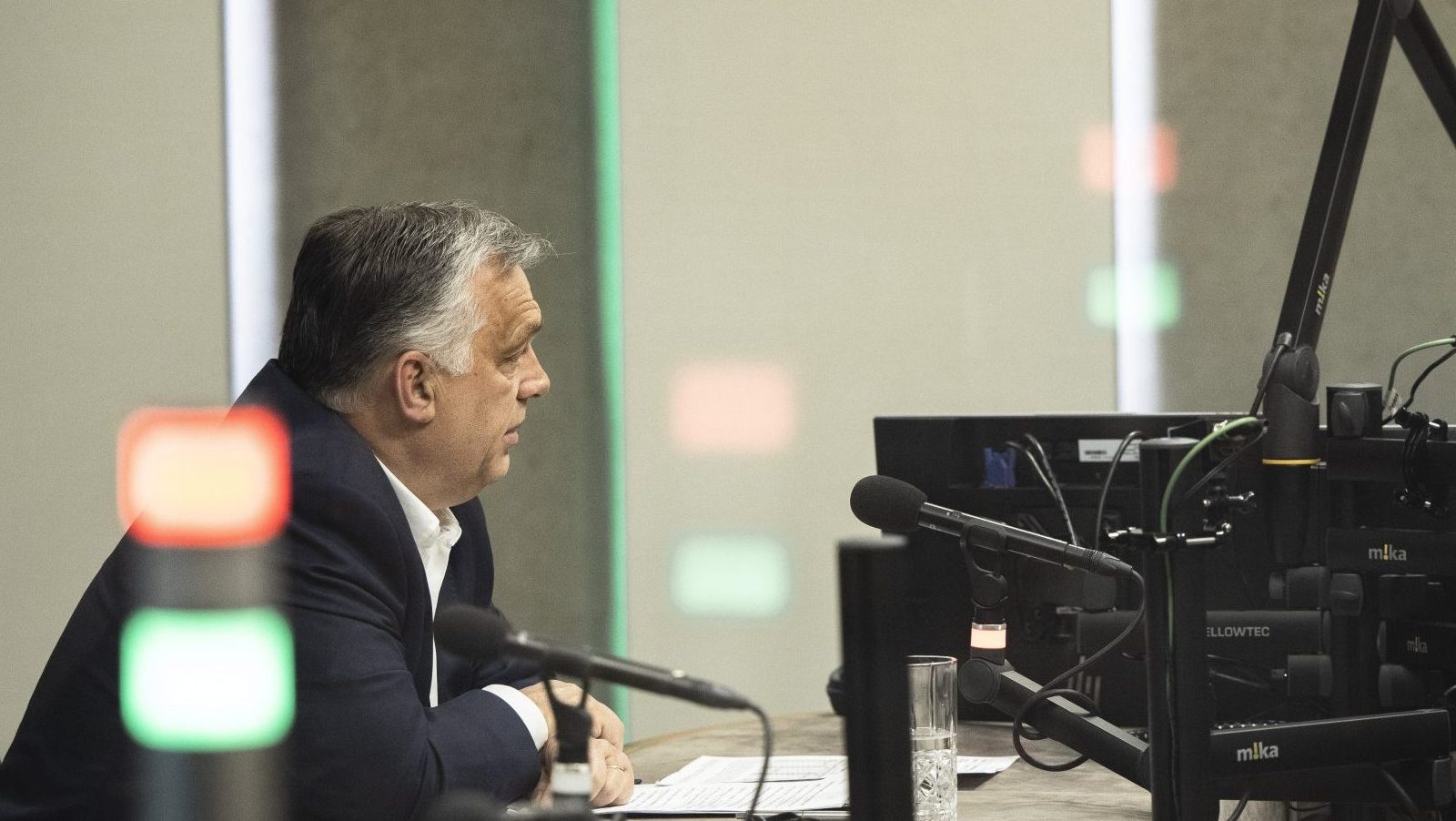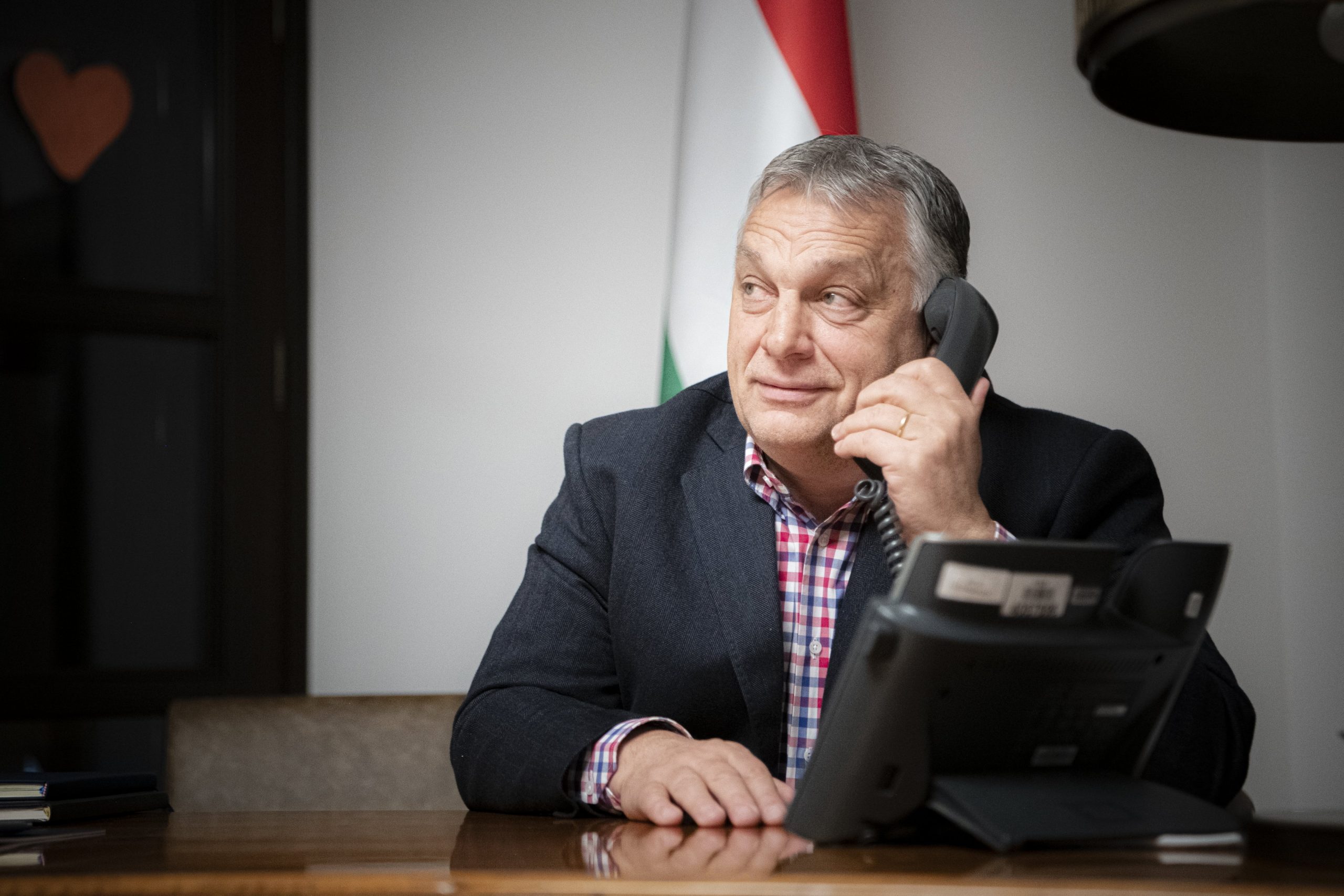
He said that on the issues of migration, border protection and European unity there must be action now, because unless European politicians adopt decisions immediately, processes will start which will later prove to be unstoppable.
Mr. Orbán stated that “We must make decisions now, otherwise in twenty, thirty or forty years from now our descendants – or perhaps we ourselves – will face consequences which we will regret.”

He quoted a UN statistic which predicts that over a period of thirteen years the population of Africa will increase by 500 million: almost as much as the European Union’s current population. Meanwhile the gap in living standards between Africa and Europe will grow, and as a result, he said, the migration pressure from Africa will definitely intensify.
Therefore, the Prime Minister said, “the development of Africa cannot occur in five years’ time; its development must start now, so that we can take help there, and not bring the problems here.”
Mr. Orbán also pointed out that on the issue of migration unity between Eastern and Western Europe must be restored now, because later it will be impossible. He stressed that the time horizon needed for consideration of migration is measured in decades.
He also said that there must be acceptance of the fact that the EU’s current leaders and structures are unable to resolve the question of migration. Agreeing with former French president Nicolas Sarkozy, he said that therefore “we must change the system”, relieve the European Commission of its powers related to migration and border protection, and set up a body to respond to migration which comprises the interior ministers of the Schengen Area’s Member States.

“If after the European elections at least this much can be achieved”, he observed, “then those European elections will already have proved their worth.”
In the Prime Minister’s view, in Western Europe today the most important question is management of the civilisational co-existence between diverse population masses and native populations. In Central Europe, he said, there are no such masses, and “all our efforts are directed towards ensuring that there won’t be”. The result of this, he said, is incongruity between politics in the western and eastern halves of Europe, but in this struggle the Hungarians feel that they occupy the moral high ground: unlike Westerners, Hungarians do not want to impose their approach on the other half of Europe.
In his speech Mr. Orbán described it as “unnatural” that today Hungary is playing a leading role in the migration debate, as this is not warranted by either the size of its territory, army, or per capita GDP. He noted that the Hungarian army is of high-quality, but in terms of size is not a deterrent threat, and said that “when we talk with the Turks, I sometimes say that we have as many soldiers as they have deserters on any given weekend”.
In his view, Hungary’s “reputation” is a consequence of geography and history, as it is a border country towards both the East and the South, and thus plays a prominent role when Europe is threatened from those directions. This is why Hungary found itself on the front pages of newspapers in 1956, he argued, and now the situation is the same: when migrants opt not for the sea route but the land route, they necessarily travel up across Hungary’s southern borders.
He said that “neither Hungary nor its political leaders – myself included – want to play any kind of leading role in Europe”, as there is already enough work to be done within Hungary. Nevertheless, he said, there is no other course, as the Hungarian people do not want to wake up again to see 400,000 people – mostly men of military age – marching through the country. This is why the border fence was built, he stated, and this is why the Government has opposed the European mainstream.
The Prime Minister also highlighted that over the past thirty or forty years Europe has seen the development of the conception that societies – and particularly the shared world of Europe – must be led not by individuals, but by institutions. This European political conception therefore declares institutions to be good and strong politicians to be bad; and every strong leader who seeks to solve apparently impossible problems is judged negatively, and is “attacked with the full force of European soft power”.
The Prime Minister estimated that in the western half of Europe 85 per cent of this “soft power” – the world surrounding politics, such as think tanks, NGOs, universities and the media – is left-wing and liberal, and can act in coordination. Therefore, he said, if a Western European thinks like a Hungarian and speaks as a Hungarian would, the very next morning “this 85 per cent will rip them to shreds.” He assessed the corresponding ratio in Central Europe as being closer to 50 per cent – or perhaps tending slightly towards the Christian-conservative side. “Therefore, I can survive responses to the statements I make and the approaches that I adopt,” he stated, adding, “Here in Central Europe I can survive, but not in the West.” Although in his view the Hungarian government is right, he said that perhaps no country or prime minister has ever had a reputation in Western Europe which was as bad as Hungary’s and his today.

From Hungary’s point of view it is therefore key, he continued, that there should at last be a large European country which says what the Hungarians say. He said that this country might be Italy, because it is also a border country, but one with maritime borders. Mr. Orbán stressed that “Our resources are finite, and we need a large Western European country which finally says the same things that we do.”


